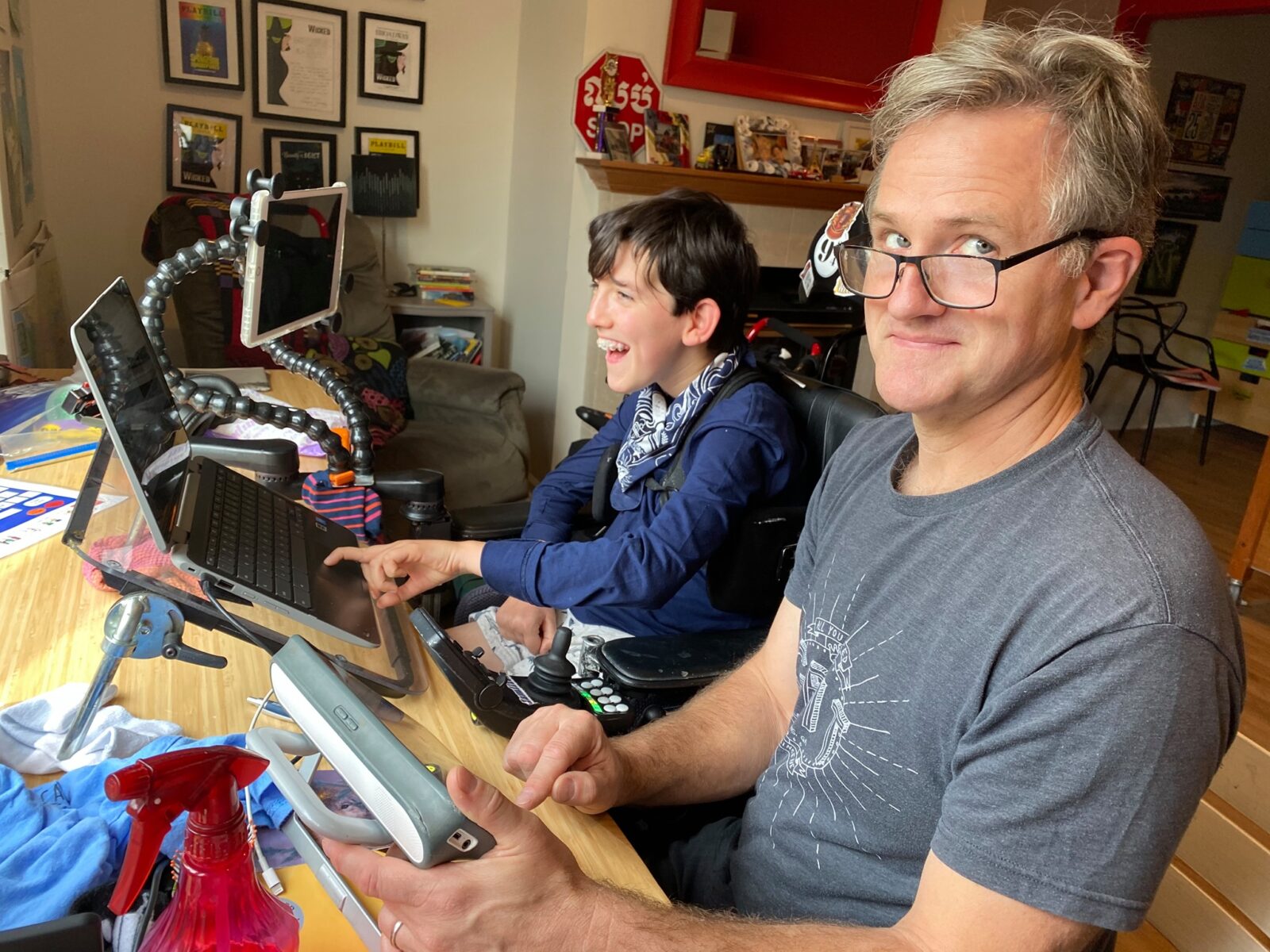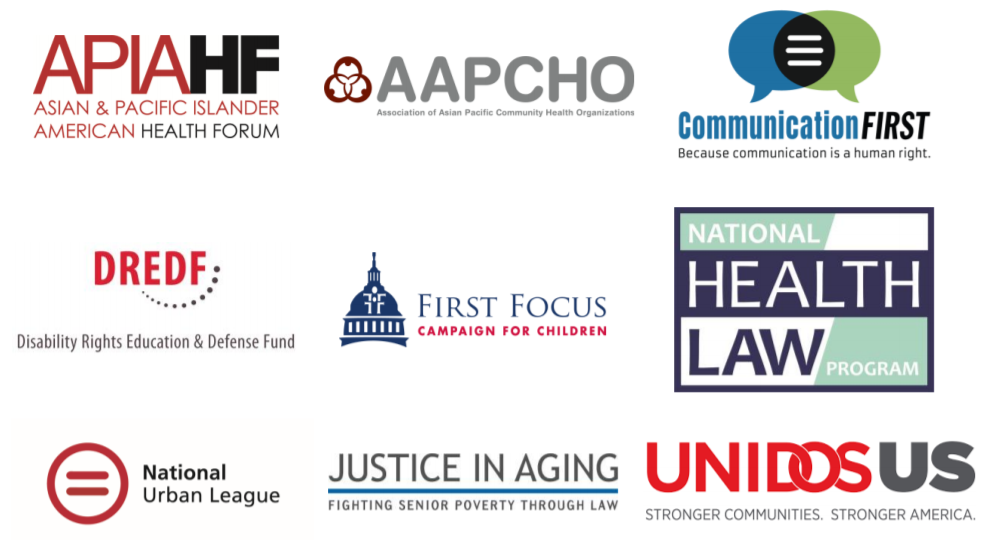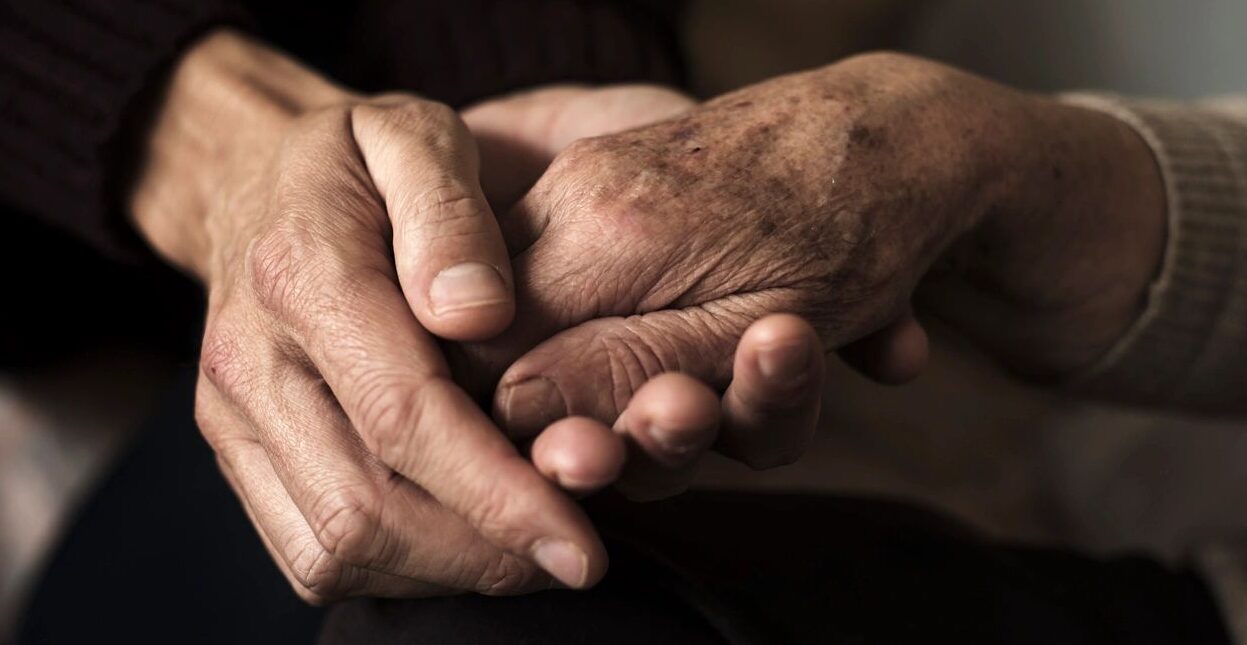FOR IMMEDIATE RELEASE: September 7, 2023 Contact: Tauna Szymanski & Bob Williams at info@communicationfirst.org, 202-556-0573 WASHINGTON, D.C. — CommunicationFIRST,…
WASHINGTON, D.C. – In a resolution that applies to all MedStar Health Inc. (“MedStar Health”) care locations in Washington, D.C., Maryland, and Virginia, MedStar Health has agreed to end its discriminatory treatment of patients with disabilities, including William King, a 73-year old man with communication-related disabilities, and to modify its policies to ensure patients with disabilities can access the in-person supports needed to communicate and have equal access to medical care during the COVID-19 pandemic.
Twelve-year-old AAC user Leo True-Frost participates in virtual learning with his father, Jim True-Frost, supporting him. In November and December…
These nine studies, published between May and December 2020, tell us people with intellectual or developmental disabilities (including those who rely on AAC) are between 1.7 and 16 times more likely to die from COVID if they get it than those who do not have I/DD.
In response to multiple requests, we’ve prepared a resource to help our student members (US residents who cannot rely on…
Professor Simms’ course is an excellent example for instructors to follow, even after the pandemic ends. Open communication, with a commitment to disability inclusion in the classroom, is what ought to be exhibited by every instructor. Societal changes start at the community level, with education laying the foundation. As I watched my online commencement with my family and friends, I looked towards the future in hope, anticipating the day when the validation and accommodation of students and their experiences would be commonplace for all.
CommunicationFIRST today joins eight other national organizations that that work with and advocate for Limited English Proficient (LEP) populations, deaf and hard-of-hearing communities, blind persons, and people who cannot rely on speech to be heard and understood, in a letter to Congress urging it to ensure the federal response to…
We have received multiple calls from around the country about overly restrictive hospital “no-visitor” policies. These policies often allow visitors for patients without disabilities, including infants, children, women giving birth, and those at the end of life, but prevent access to the support people necessary for patients with disabilities.
Earlier today, CommunicationFIRST, together with Disability Rights Connecticut, the Center for Public Representation, and the Arc of the United States filed a complaint with the U.S. Department of Health and Human Services Office for Civil Rights (HHS OCR) regarding the failure to provide people with disabilities reasonable accommodations to hospital no-visitor policies in effect during the COVID-19 pandemic.
CommunicationFIRST has prepared a COVID-19 Communication Rights Toolkit, recognizing that our population—people who face significant barriers being understood with speech and accessing effective communication supports in the best of times—is likely to face even greater barriers to accessing our necessary communication supports if we are hospitalized due to a coronavirus infection.










